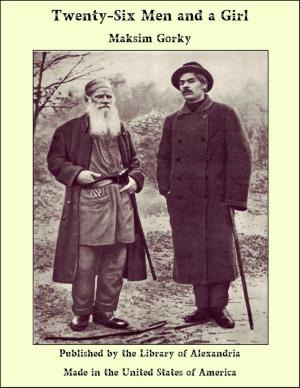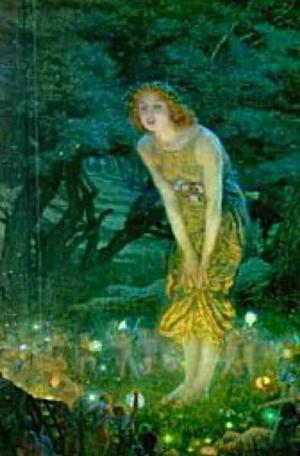Begumbagh: A Tale of the Indian Mutiny
Nonfiction, Religion & Spirituality, New Age, History, Fiction & Literature| Author: | George Manville Fenn | ISBN: | 9781465620521 |
| Publisher: | Library of Alexandria | Publication: | March 8, 2015 |
| Imprint: | Language: | English |
| Author: | George Manville Fenn |
| ISBN: | 9781465620521 |
| Publisher: | Library of Alexandria |
| Publication: | March 8, 2015 |
| Imprint: | |
| Language: | English |
That’s a pretty busy time, that first half-hour after a halt: what with the niggers setting up a few tents, and getting a fire lighted, and fetching water; but in spite of our being tired, we soon had things right. There was the colonel’s tent, Colonel Maine’s—a little stout man, that we all used to laugh at, because he was such a little, round, good-tempered chap, who never troubled about anything, for we hadn’t learned then what was lying asleep in his brave little body, waiting to be brought out. Then there was the mess tent for the officers, and the hospital tent for those on the sick-list, beside our bell tents, that we shouldn’t have set up at all, only to act as sun-shades. But, of course, the principal tent was the colonel’s. Well, there they were, the colonel and his lady, Mrs Maine—a nice, kindly-spoken, youngish woman: twenty years younger than he, she was; but, for all that, a happier couple never breathed; and they two used to seem as if the regiment, and India, and all the natives were made on purpose to fall down and worship the two little golden idols they’d set up—a little girl and a little boy, you know. Cock Robin and Jenny Wren, we chaps used to call them, though Jenny Wren was about a year and a half the oldest. And I believe it was from living in France a bit, that the colonel’s wife had got the notion of dressing them so; but it would have done your heart good to see those two children—the boy with his little red tunic and his sword, and the girl with her red jacket and belt, and a little canteen of wine and water, and a tiny tin mug; and them little things driving the old black ayah half-wild with the way they used to dodge away from her to get amongst the men, who took no end of delight in bamboozling the fat old woman when she was hunting for them; sending them here, and there, and everywhere, till she’d turn round and make signs with her hands, and spit on the ground, which was her way of cursing us. For I must say that we English were very, very careless about what we did or said to the natives. Officers and men, all alike, seemed to look upon them as something very little better than beasts, and talked to them as if they had no feelings at all, little thinking what fierce masters the trampled slaves could turn out, if ever they had their day—the day that the old proverb says is sure to come for every dog; and there was not a soul among us then that had the least bit of suspicion that the dog—by which, you know, I mean the Indian generally—was going mad, and sharpening those teeth of his ready to bite.
That’s a pretty busy time, that first half-hour after a halt: what with the niggers setting up a few tents, and getting a fire lighted, and fetching water; but in spite of our being tired, we soon had things right. There was the colonel’s tent, Colonel Maine’s—a little stout man, that we all used to laugh at, because he was such a little, round, good-tempered chap, who never troubled about anything, for we hadn’t learned then what was lying asleep in his brave little body, waiting to be brought out. Then there was the mess tent for the officers, and the hospital tent for those on the sick-list, beside our bell tents, that we shouldn’t have set up at all, only to act as sun-shades. But, of course, the principal tent was the colonel’s. Well, there they were, the colonel and his lady, Mrs Maine—a nice, kindly-spoken, youngish woman: twenty years younger than he, she was; but, for all that, a happier couple never breathed; and they two used to seem as if the regiment, and India, and all the natives were made on purpose to fall down and worship the two little golden idols they’d set up—a little girl and a little boy, you know. Cock Robin and Jenny Wren, we chaps used to call them, though Jenny Wren was about a year and a half the oldest. And I believe it was from living in France a bit, that the colonel’s wife had got the notion of dressing them so; but it would have done your heart good to see those two children—the boy with his little red tunic and his sword, and the girl with her red jacket and belt, and a little canteen of wine and water, and a tiny tin mug; and them little things driving the old black ayah half-wild with the way they used to dodge away from her to get amongst the men, who took no end of delight in bamboozling the fat old woman when she was hunting for them; sending them here, and there, and everywhere, till she’d turn round and make signs with her hands, and spit on the ground, which was her way of cursing us. For I must say that we English were very, very careless about what we did or said to the natives. Officers and men, all alike, seemed to look upon them as something very little better than beasts, and talked to them as if they had no feelings at all, little thinking what fierce masters the trampled slaves could turn out, if ever they had their day—the day that the old proverb says is sure to come for every dog; and there was not a soul among us then that had the least bit of suspicion that the dog—by which, you know, I mean the Indian generally—was going mad, and sharpening those teeth of his ready to bite.















